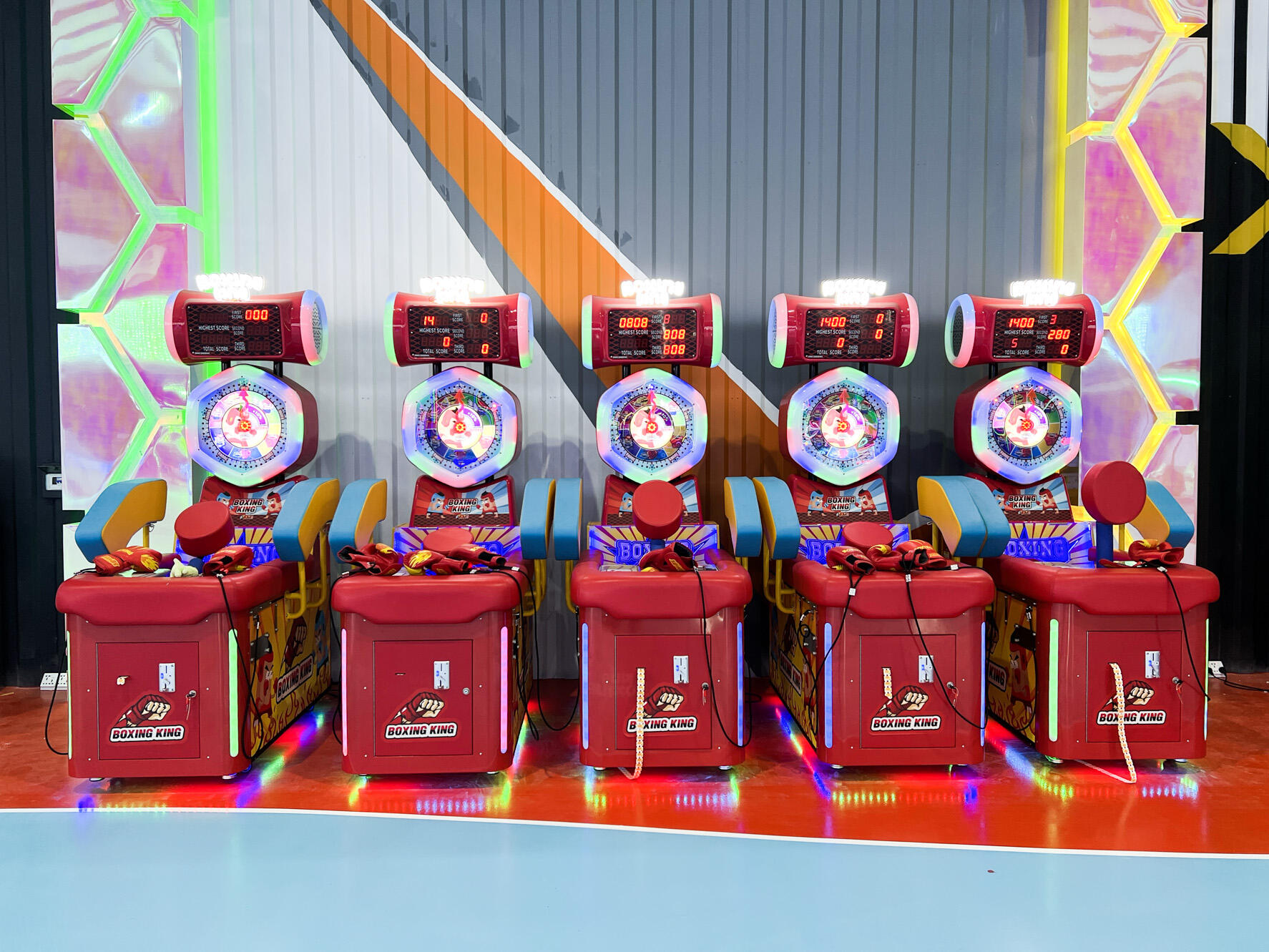Očaravanje sreće: Zašto nas oduševljavaju loto strojevi
Psihologija neizvjesnosti i nagrade
Loterejske mašine privlače našu pažnju zbog principa kognitivne psihologije, jer nam pokazuju da je upravo nesigurnost ono što održava osobu u igri. Prema stručnjacima za ponašajnu ekonomiju, nesigurnost loterejskih igara također zadovoljava ljudsku potrebu za rizikom i nagradom. Ova želja na kraju svodimo na naše mozgove, jer psihološka istraživanja pokazuju kako dopamin ima glavnu ulogu u kockanju. Zaista, ono što se dešava jeste da se dopamin oslobađa kroz [očekivanje moguće dobitke] i dogodilo se nagradno iskustvo. Za razliku od mašina iz igraonica ili igara kao što je vazdušni hokej, koje više zavise od veštine, loterejske mašine projektovane su tako da stvore drugačiji oblik psihološkog uzbuđenja, koje zavisi isključivo od sreće. Čar je u iznenađenju i privlačnosti odmah dostupne nagrade, a zapravo predstavljaju zanimljivo istraživanje ljudske psihologije.
Paralele s igrama šanse u arcade-u
Lutrijske mašine su vrlo slične šakama za hvatanje koje se prodaju i borilačkim arkadnim igrama, barem u smislu načina na koji vas drže u igri. Obe stvaraju istu atmosferu suprotstavljanja i uzbuđenja kombiniranjem elemenata proizvoljnosti i vještina. Rekreacijske igre u arkadama često omogućuju igračima da isprobaju svoje vještine, čime postižu zadovoljstvije od pobjede, dok lutrijske mašine predstavljaju test temeljen na sreći i našoj sklonosti prema nepredvidivostima. To je poput mitraljeza, a statistike pokazuju da su arkadne igre dovoljno popularne da se mogu usporediti s lutrijskim strojevima, uz dodatnu prednost da privlače brojne različite ciljane skupine potrošača iz oba segmenta igračke mašine privlače sličnosti u privlačnosti klađenja poput sretnih čarapa. Taj trzaj i nasumičnost su ono što ovim igračkim zajednicama pruža dinamično i stimulativno okruženje za igrače.
Kulturna fascinacija s trenutnim bogatstvima
Veliki dio naše opsesije na lutrijskim strojevima proizlazi iz javnog dojma i mitova o lutrijskom džekpotu. Priče o lutrijskim slavnima, koji su iznenada postali bogati, fasciniraju mase i nadahnjuju maštu o trenutnom bogatstvu. Relativno dosadne priče poput ovih imaju tendenciju da pobude prikaze na velikim i malim ekranima, koje se nudi potencijalnim igračima u obliku raskoši i beznapornog uspjeha. Brojke prodaje lutrijskih karata dodatno potvrđuju ovu visoku ukupnu potražnju na svim razinama dohotka i dobi te upućuju na snažnu kulturnu želju za brzim obogaćenjem. Fantazija o mogućnosti da se život okrene naglavačke zadržava snažnu dominaciju nad javnom maštom, što pokazuju i dalje visoke prodaje i visoka sudjelovanja u lutrijskim igrama.
Mehanika loto strojeva: Kako se šansa inženira
RNG sustavi: Digitalno srce
Digitalna logička uprava putem generatora slučajnih brojeva (RNG) koristi se za izradu elektroničkog tijela loterijskih mašina kako bi rezultati bili pošteni i nepredvidivi. Ove pažljivo dizajnirane algoritme stvorile su sekvencu slučajnih brojeva koja je bila ključna za očuvanje povjerenja kod vještih igrača u igraonicama iz prošlosti. Višestruki algoritmi, uključujući Mersenne Twister i razne kriptografske protokole, koriste se za ispunjenje općih zahtjeva slučajnosti koje neke igre zahtijevaju. Akademska analiza tijela za igre utvrdila je da su RNG-ovi pošteni i slučajni, čime su postali industrijski standard za tržište igara.
Procesi izvlačenja: Od fizičkih bubnjeva do digitalnih sustava
Proces izvlačenja lutrijskih brojeva se znatno razvijao od onih starih bubnjeva. U početku su izvlačenja lutrije bila ručno vođena i nisu nužno bila najsigurnija forma igre, dok su sada, uz najnoviju tehnologiju, izvlačenja dostupna uživo i na web stranicama 24 sata dnevno i nude sudionicima više zabave nego ikada prije. Digitalizacija omogućuje višu razinu točnosti uz praćenje promjena i uklanja mogućnost pogreške uslijed ljudskog faktora. Stručnjaci su se složili da iako digitalni sustavi nude ogromne pogodnosti, imaju i svoje opasnosti, uključujući prijetnje iz kibersvijeta, te je važno utvrditi sigurnosna pravila. I dok sve više loto izvlačenja prelazi u digitalnu sferu, ostaje važno održavati ravnotežu između učinkovitosti i sigurnosti.
Potvrda kartica i mehanizmi plaćanja
Procesi provjere valjanosti ulaznica i isplate nagrada važne su značajke loterijskog sustava koji osiguravaju da se pobjednici uspješno verificiraju i isplate. Također mogu pomoći u pripremi za budućnost korištenjem digitalnih tehnika verifikacije poput QR kodova ili digitalnih skenera koji uspostavljaju osnovu povjerenja i sprječavaju prijevaru. Dinamika isplate utječe na percepciju igrača kroz način isplate dobitaka i njezin utjecaj na povjerenje u sustav. Brojke pokazuju višu stopu sudjelovanja kada je proces isplate transparentan, što znači da što su igrači sigurniji da su pravedno tretirani, to su skloniji sudjelovati. Jak i siguran sustav provjere valjanosti također osigurava da se lutrijske igre provode pošteno – a to je ključno za kontinuirani rast i uspjeh igara.
Očaravanje sreće: Zašto nas oduševljavaju loto strojevi
Psihologija neizvjesnosti i nagrade
Naši umovi su zarobljeni u kockarničkoj mašini, vjerovanjima vezanim uz broj 7 i kognitivno-psihološkim principima koji uređuju naš odnos prema slučajnosti. Stručnjaci za ponašajnu ekonomiju nam govore da nepredvidivost pruža vrstu psihološkog uzbuđenja koja zadovoljava našu osnovnu potrebu za rizikom i nagradom. Istraživanja koja objašnjavaju kako ljudski mozak tijekom kockanja dobiva dodatni val dopamina upućuju na privlačnost slučajnosti koja razdvaja [ arkadnoj mašini ](#) od ostalih kockarskih automata na tržištu, koji su često jednako slični arkadnim igrama kao i nekim drugim uređajima. Kod arkadnih igara izazovi su često temeljeni na vještinama, a rizik i nagrada obično nisu toliko nepredvidivi ili zadovoljavajući kao mentalne igre koje igraju kockarske mašine.
Paralele s igrama šanse u arcade-u
Postoje neke zanimljive sličnosti između uređaja za lutriju i arkadnih igara, oba stvaraju okolinu koja je vrlo kompetitivna i puna akcije. Oba imaju elemente slučajnosti i nesigurnosti koji osiguravaju da igrači i dalje nalaze zanimljivim, te naglašavaju različite aspekte vještina. Lutrije su dizajnirane za slučajnost, dok arkadne igre također miješaju vještine i slučajnost. Prema statistikama, postoji brzi rast zanimanja za igre slučaja u arkadama. Također pokazuje zanimljive razlike u dobi igrača ovog tipa igara u usporedbi s dobima igrača lutrijskih uređaja. To je u skladu s univerzalnim kulturnim šarmom igara slučaja i naglašava potencijal takvih igara da izazovu uzbuđenje.
Kulturna fascinacija s trenutnim bogatstvima
Nije nikakva zagonetka što čini dobitke na lutriji tako privlačnima; njihova privlačnost duboko je ukorijenjena u društvenom i kulturnom tkivu, prikazana iznova kroz poznate osobe i njihove čudesne promjene sreće. Tu fascinaciju pojačavaju medijski prikazi u filmovima i serijalima koji čine naglo bogatstvo dostupnim. Takve prikaze povećavaju interesovanje igrača, potičući nade u bogatstvo preko noći. Broj prodanih loto kartica statistički demonstrira interesovanje za ovu opsesiju, a to je posebno uočljivo kod demografskih skupina koje su sklonije teženju za brzim novcem. Priča o kulturi u kojoj je brzo bogatstvo dostupno održava sudjelovanje u igri tako što neprestano podsjeća na uzbudljivu mogućnost promjene života.
Razumijevanje šansi: Vjerojatnost u luteriji protiv video igara
Izračunavanje vjerojatnosti pobjede u luteriji
Kada igrate lutriju, ključno je znati matematiku iza šansi za pobjedu, a za one koji planiraju igrati loto igre, važno je razumjeti osnove igranja i osvajanja lutrija. Svaka verzija lutrije temelji se na raznim matematičkim jednadžbama, bilo da je riječ o skrivenim karticama (scratchoffs) ili igrama s više država poput Powerballa. Na primjer, imate samo 1 od 292 milijuna šanse da osvojite Powerball lutriju, što pokazuje koliko je teško pogoditi pet bijelih kugli između 69, plus jednu crvenu Powerball kuglu između 26. Različite vrste lutrijskih igara imaju različite kvote; neke igre sa skrivenim karticama imaju bolje šanse za manje dobitke, ali su šanse za veliki dobitak niže. Usporedne statističke analize kroz godine su pokazale da se kvote čine rezultatom ponderiranja džekpota na način koji pogoduje rjeđim isplatama i potencijalno velikim dobitcima – znate, kako bi igra ostala zanimljiva i privlačna za igrače.
Usporedne šanse: Air hockey vs. Jackpoti
Kada se uspoređuju šanse za dobivanje u kockarničkim igrama poput hokeja na zraku u usporedbi s jackpotima na lutriji, važno je imati na umu razinu vještine koja je uključena u usporedbi s čistom srećom. Igre koje bi se našle u kockarnici, poput hokeja na zraku, u osnovi se temelje na vještini, pa je veća vjerojatnost da ćete uspjeti jednostavno uvježbavanjem i time da u to budete dobri. Za razliku od lutrija koje se temelje na slučaju, pa su stoga šanse znatno manje, jer kod lutrija vi odaberete niz brojeva i nadate se da će p pasti! Taj razmak u vjerojatnosti može se objasniti na dubljem nivou analize: na „psihološkoj“ razini. Za igrače, razlika u vjerojatnosti ovdje dramatično utječe na njihov stav prema poštenoj igri: igre u kockarnici čine se više „poštene“ jer zahtijevaju određenu vještinu, dok se lutrija čini poštenujom uprkos svojim ogromnim šansama zahvaljujući svojim ogromnim potencijalnim dobitcima. Istraživanja ponašanja igrača pokazala su da dok oni koji igraju igre u kockarnici teže igrati ponovno i uvježbavati razvijajući vještine, kupci lutrijskih kartica teže kupnji karata na impuls, nadajući se velikom novčanom dobitku.
Prednost Kuće u sustavima baziranim na šanci
Kućni rub također utječe na ishode i očekivanja igrača u lutriji i arkadnim igrama. U slučaju lutrija, kućni rub proizlazi iz razlike između prodaje karata i iznosa koji se isplaćuje kao nagrade, što u mnogim slučajevima može biti ogroman udio zadržan od strane organizatora lutrije. To osigurava velikog pobjednika ili pobjednike, ali istovremeno osigurava da operacije ukupno donose profit. Čak i arkadne igre imaju kućni rub; igre na sreću poput mašina s kliještima programirane su tako da budu profitabilne na duge staze. Stručnjaci iz industrije tvrde da poznavanje kućnog ruba pomaže entuzijastima kazina da postave realistična očekivanja i bolje kontroliraju svoje sudjelovanje. Kućni rub na lutrijskim igrama može doseći i do 50%, dok se kod arkadnih igara potencijal može drastično razlikovati ovisno o mehanici i dizajnu igre.
Poređenjem ovih elemenata, igrači mogu donijeti obrazbavana odluka o angažmanu sa bilo kojim oblikom zabave, balansirajući uzbuđenje izazovima temeljenim na vještini ili sanju o slučajnim značajnim pobjedama.
Odgovorna igra: Strategije i realistične očekivanja
Provaljivanje mitova o uobičajenim 'sistemima'
Postoji mnoštvo mitova u svijetu kladionica, a ti se mitovi odnose i na igru lutrije i na sustave lutrije koje ljudi tvrde da rade. Unatoč privlačnosti takvih sustava, važno je napomenuti da većina njih statistički ne utječe na poboljšanje vaših šansi. Takvi savjeti su tehnički točni, ali nisu korisni; sve sam to čuo", rekao je Larry Lesser, profesor matematike. Zaista zanimljivo je da psihologija može pomoći da razumijemo zašto su ljudi privučeni činjenici da ovi mitovi vrijede, a djelomično je to zato što ovi mitovi prilično lijepo odgovaraju pristranskostima s kojima smo već ugodno upoznati kada je u pitanju kockanje i vjerojatnost. Matematika to također potvrđuje, jer bez obzira na način biranja brojeva, šanse za pobjedu se ne mijenjaju.
Budžetiranje za vrijednost zabave
Učešće na lutriji treba općenito smatrati opcijom samo za 'zabavu' i ne načinom za zarađivanje novca; osim ako ne planirate od učešća na lutriji napraviti posao igrajući rulet s nula rupa, poker ili kockarske automate. (Također, ako igrate lutriju, pobrinite se da za to odvojite budžet za zabavu i da ne potrošite više nego što vam je prihvatljivo) Odgovorno kockanje u prvom je redu pitanje postavljanja jasnih granica i discipline u kockarskim navikama. Imajte na umu upozorenja o problematičnom kockanju, poput gonjenja za gubicima ili zanemarivanja svojih financijskih obveza. Lutrije kao oblik zabave stavljuju zabavu iznad novca, a to je mjesto na kojem svi mi možemo kockati bez da prihvatimo financijske gubitke.
Prepoznavanje štete od igre sigurnosna mjera
naravno, postoje zaštitne mjere protiv problema s kockanjem koje su provedene. Prijave u programe samostalnog isključivanja i pristup savjetovanju nužni su za pomoć ljudima koji žele smanjiti ili prestati kockati se. Inicijative odgovorne igre koje provode i industrija i vlada nastoje smanjiti štetu i probleme povezane s kockanjem kroz edukaciju i informiranje. Istraživanja pokazuju da takve mjere mogu biti učinkovite u poticanju zdravije igre. Jedna takva inicijativa su programi samostalnog isključivanja, koji su omogućili ljudima da preuzmu kontrolu nad svojim kockanjem i stvorili sigurnu okolinu za igru za sve.












